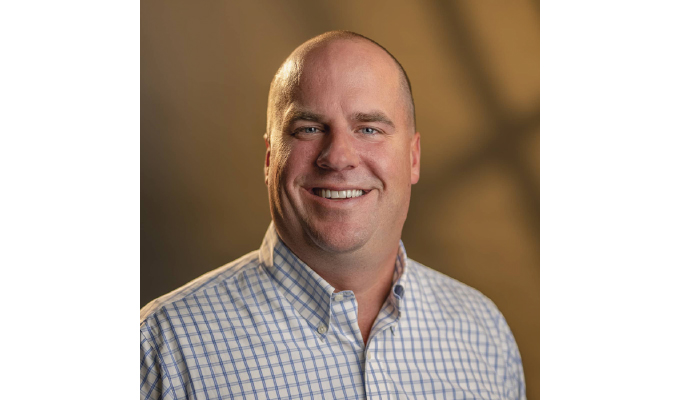This issue is all about maintenance and safety—after all, a well-maintained vehicle is a safe vehicle. An efficient shop gets fleet vehicles in and out quickly and keeps vehicles on the road earning money. So how does one ensure an efficient shop? Read on as Patrick McKittrick, Fullbay CEO, tells us how with the help of Fullbay’s shop management platform.
MWS: WE LAST CHATTED WITH FULLBAY TWO YEARS AGO, BUT WOULD YOU MIND GIVING A SHORT DESCRIPTION OF FULLBAY FOR OUR NEW READERS?
McKITTRICK: Fullbay is the leading commercial repair shop management platform. It empowers independent repair shops, mobile repair techs, or private fleets with maintenance operations to receive repair requests, invoice customers, and everything in between. At its core, Fullbay brings the traditional approach of handling maintenance on pen and paper into the digital age. You can track preventive maintenance to prevent unexpected downtime, optimize efficiencies across every aspect of the business, use a standardized workflow to prevent lost revenue, manage your inventory, track invoices, collect payments directly in the app, and more.
MWS: ARE THERE ANY UPDATES TO THE PLATFORM THAT WE SHOULD KNOW ABOUT?
McKITTRICK: Absolutely! At Fullbay we are constantly trying to improve by releasing new features and integrations. Over the past two years, we’ve made countless updates to the core platform and invested significantly in our ability to continue innovating. One big highlight is the most comprehensive integrated payment processing solution for repair shops, called Fullbay Payments. Shops using Fullbay can collect everything from credit cards, ACH, fleet checks, and fuel cards. In the past shops may have had to use multiple different solutions to collect all these payment types, but now Fullbay makes it simple and adds a best-in-class payments portal to view transactions, issue refunds, and manage disputes.
We’ve also introduced a way for shops to grow their business with Dieselmatic—a premium marketing agency specially designed for commercial repair shops. With Dieselmatic, shops can have a custom website built, their advertising campaigns managed professionally, and more. This frees up owners to focus on their business, while Dieselmatic helps to bring in new customers, recruit employees, and manage their reputation.
MWS: WE KNOW FULLBAY IS DESIGNED FOR HEAVY-DUTY VEHICLE REPAIR, BUT WILL TECHNICIANS AND STAFF BE ABLE TO OPERATE WITH FULLBAY JUST AS SMOOTHLY IF A LIGHT-DUTY VEHICLE COMES IN FOR REPAIR?
McKITTRICK: Fullbay’s process not only works for heavy-duty repair, but also can easily work for light-duty vehicles as well. We have many customers that repair Classes 1-8 and use integrations like MOTOR’s Auto Labor and Service Guides to be just as efficient with a passenger vehicle as they are a semitruck. Fullbay offers a robust workflow for the maintenance of commercial fleets, whatever the class, but is flexible enough to get an invoice created in just a few minutes.
MWS: CAN THE FULLBAY PLATFORM BE CUSTOMIZED TO FIT THE NEEDS OF THE SHOP?
McKITTRICK: There isn’t a one-size-fits-all approach to managing commercial repair shops. Each one has its own goals, its own processes, and different needs from a shop management platform. When a new shop signs up with Fullbay we provide unlimited free guided training to understand the customer’s business and tailor the software to their needs. Fullbay was designed to fit all these different needs while also having the ability to scale as shops grow—it’s just as effective for a single person operating out of the back of a truck as it is for a multi-location business with hundreds of employees.
MWS: CAN YOU GIVE A REAL-LIFE EXAMPLE OF HOW OPERATIONS HAVE CHANGED FOR A SHOP USING FULLBAY?
McKITTRICK: There are many examples of shops that have had great success using Fullbay. One shop that comes to mind told us they saw a 50% increase in revenue right away when they first started using Fullbay, simply because they were able to complete work at a faster rate. Two different mobile operations also saw huge improvements. One reported a 20 to 30% increase in profits and the other started saving between $60,000 and $75,000 a year because Fullbay allowed them to do more with less, negating the need to hire an extra service writer. One more example was a shop that went from having a communication gap to a 25% increase in technician efficiency.
These are all real stories, and the data shows that if a shop gets fully up and running with the platform, they’ll see big improvements, which will affect their bottom line and ultimately, will create a better life for that shop owner and those working in the shop.
FOR MORE INFORMATION
Patrick McKittrick is the CEO of Fullbay. Prior to joining Fullbay in 2021, he served as CEO of FieldRoutes, a software company focused on the field services industry, which is now owned by ServiceTitan. McKittrick’s expertise is in scaling and expanding the service offerings of industry-specific software companies. Since joining Fullbay the company has more than doubled its revenue, added over 100 employees, and completed the acquisition of Dieselmatic, a digital marketing agency for heavy-duty repair shops. McKittrick attended the University of North Carolina at Chapel Hill and lives with his family in Dallas, Texas. Find out more about Fullbay, visit www.fullbay.com.




